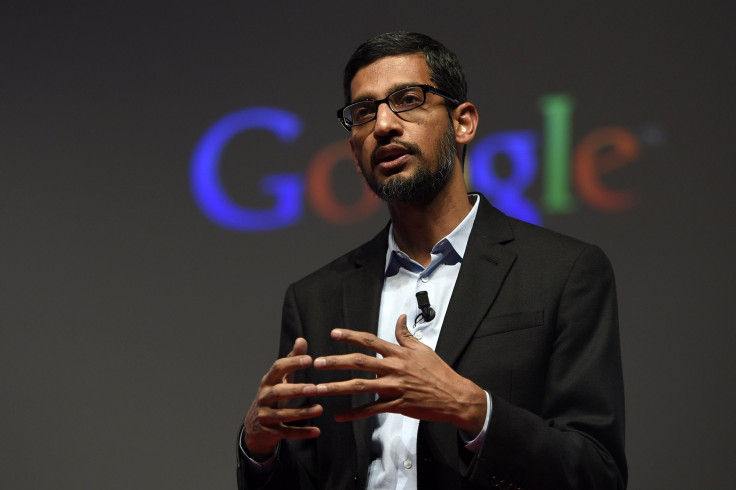Google CEO Sundar Pichai Slams FBI Backdoor Request, Says Company Values User Privacy

Google CEO Sundar Pichai weighed in on the Apple-FBI controversy on Wednesday, saying the search giant wants to stand firm against software vulnerabilities that grant third-party access, or “backdoors,” to smartphones and other products.
Speaking at a Sciences Po event in Paris, Pichai said the debate was “a serious issue” that “always ends up harming the consumer.”
#sundarparis Apple/FBI : User privacy is at the heart of what we do-We want to take a strong stance against backdoors, Says Google's Pichai
— Chine Labbé (@Leparisdechine) February 24, 2016
The issue of backdoors moved to the front burner after Apple refused to comply with a court order to grant the FBI access to the iPhone 5C of one of the San Bernardino shooters. Syed Farook, along with wife Tashfeen Malik, shot and killed 14 people before dying in a shootout with law enforcement in California in December.
Farook’s 5C, which belonged to his county employer, has a passcode that Apple does not want to bypass, out of fear that creating the necessary software would undermine the security features in all its phones.
Last week, Pichai sent out a series of tweets supporting Apple’s stance. Pichai admitted that Google has in the past complied with government orders to hand over data, but the difference in Apple’s case is that the feds are asking Apple to hack consumer devices, which would set a “troubling precedent.”
The debate has attracted comments from all parts of the tech industry. Bill Gates, the founder of Microsoft, has come out in favor of a measured response and has called for congressional action on the issue.
John McAfee, creator of McAfee antivirus software, compared an Apple backdoor to “giving our enemies nukes.” McAfee also questioned the need for the FBI to request a backdoor from Apple in the first place. “Why can’t the FBI crack the encryption on its own?” he said in a recent interview with International Business Times UK.
Pichai’s speech covered a range of topics, but largely focused on Google’s efforts in Europe. Among other announcements, Pichai revealed plans to expand Google’s digital skills training program in France to cover students and teachers, to bring faster-loading web search pages (called AMP) to mobile, and to offer the Project Shield cyberattack service to global news organizations for free.
© Copyright IBTimes 2024. All rights reserved.






















